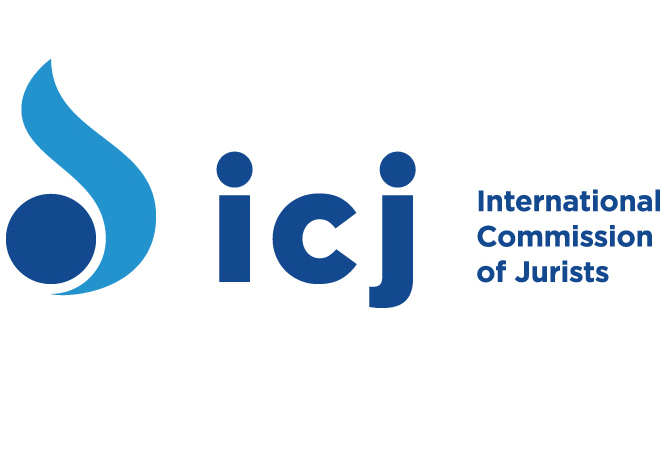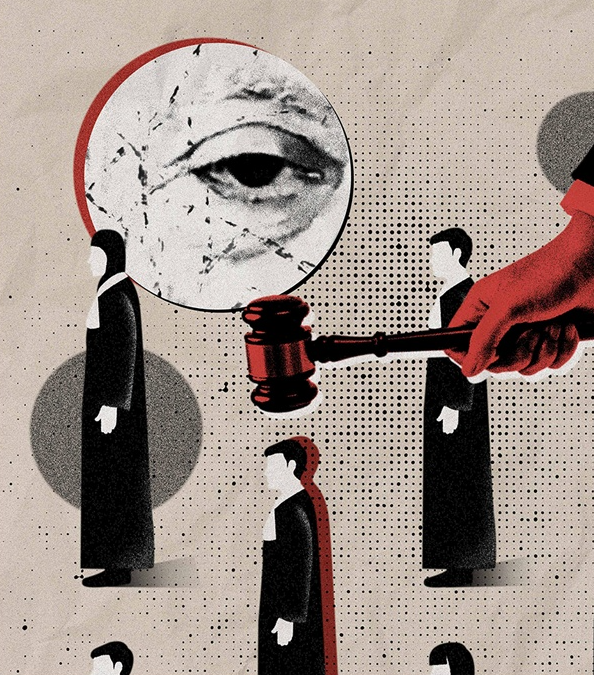


Palestine/Israel/Lebanon: End Impunity for Deliberately Targeting Journalists During Hostilities
On World Press Freedom Day, the International Commission of Jurists (ICJ) condemns a pattern of ostensibly intentional attacks against journalists and other media workers who have been targeted by Israeli strikes in southern Lebanon and the Gaza Strip in the aftermath...HRC55: The ICJ calls for more resources for the Commission of Inquiry on the Occupied Palestinian Territories & the establishment of an international independent investigation mechanism in Libya
At the 55th Session of the UN Human Rights Council, the International Commission of Jurists (ICJ) addressed dire human rights situations requiring the Council’s attention, calling for increased resources for the Commission of Inquiry on the Occupied Palestinian...
Gaza: One month on, Israel fails to comply with the Order of the International Court of Justice
The International Commission of Jurists (ICJ) condemns the continued failure by Israel and other States to comply with, and give full effect to, the provisional measures (PMs) indicated by the International Court of Justice (the Court) in its Order of 26 January 2024...
Gaza: Israel must implement Provisional Measures ordered by the International Court Of Justice
The ICJ welcomes today’s near-unanimous Order of the International Court of Justice (the Court) in the case of South Africa v. Israel, indicating provisional measures under the 1948 Genocide Convention (the Convention).
“Through this Order, the world’s highest judicial authority has acknowledged that there is a risk of genocide being committed in Gaza,” said Said Benarbia, MENA Programme Director of the International Commission of Jurists. “It is now incumbent on Israel to implement the provisional measures – as well as its obligations under the United Nations Charter – as a matter of urgency.”
In its Order delivered orally in The Hague following oral submissions by South Africa and Israel on 11 and 12 January 2024 respectively, the Court found it had prima facie jurisdiction over the case and indicated six (6) provisional measures.
The Court ordered that Israel: (1) take all measures within its power to prevent the commission of all acts within the scope of Article II(a)-(d) of the Convention; (2) ensure with immediate effect that its military does not commit any acts described in the first order; (3) take effective measures to prevent the destruction and ensure the preservation of evidence related to allegations of acts within the scope of Article II and Article III of the Convention; and (4) report to the Court on all measures taken to give effect to the Order within one month of the Order.
The Court also ordered that Israel take all measures within its power to prevent and punish the direct and public incitement to commit genocide against people in Gaza, and enable the provision of urgently needed basic services and humanitarian assistance. The Court also reminded all parties of their obligations under international humanitarian law, and called for the release of hostages.
The ICJ notes that at the provisional measures stage, the Court does not determine the merits of the case. It therefore has yet to make a determination whether Israel has committed, sanctioned, or incited genocide in violation of the Genocide Convention. A hearing on the merits will be held at a later stage. Furthermore, the role of the Court is to establish the legal responsibility of States, not individuals, in accordance with international law. The determination of the responsibility of any individuals that might be responsible for genocide would fall to the International Criminal Court (ICC), which is presently investigating allegations of international crimes committed by both parties.
This unequivocal call by the Court – a principal organ of the United Nations – for Israel to take all effective measures to prevent the commission of genocide highlights the crucial importance of swift and decisive action by the international community to: i) as previously urged by the International Commission of Jurists, ensure an immediate ceasefire and ensure the release of hostages, and ii) cease aid or assistance to Israel that may facilitate the commission of acts that may amount to genocide or undermine all States’ obligations under the Convention to prevent genocide.
“As the number of Palestinians killed in Gaza since 7 October surpasses 25,000 and continues to mount, the need for international cooperation to enforce these legally binding provisional measures cannot be overstated”, added Banarbia. “Respect for international law, including the Genocide Convention and its preventive function, demands no less”.
Notwithstanding the Order, the ICJ reiterates that individuals from all parties to the conflict, including Israel and Hamas, must be held criminally accountable for any violations of international criminal law committed since 7 October and all States should refrain from providing assistance to any party to the conflict that may amount to complicity in such criminal acts, including by imposing an arms embargo. The ICJ also urges States to support the work of the ICC and the Independent Commission of Inquiry, and, where possible, exercise universal jurisdiction over crimes under international law.
Contact:
Said Benarbia, Director, ICJ Middle East and North Africa Programme, email: said.benarbia@icj.org
Katherine Iliopoulos, Legal Adviser, ICJ Middle East and North Africa Programme, email: katherine.iliopoulos@icj.org




